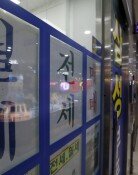[Editorial] Deregulation Needed
At last, a LG Phillips LDC factory was built in Paju, Gyeonggi Province after much strife against government regulations. If the province and LG Phillips gave into the restrictive regulations, the 42,000 jobs in the factory might have gone to Nanjing, China or Taiwan. I wholeheartedly applaud Gyeonggi Province and LG Phillips. However, I regret that many more facilities like the factory could have been established here in Korea if the government had taken the lead in deregulation and attracting investment.
When they signed an MOU for investment in February 2003, the local government and the company were faced with a huge legal barrier called the Law on Facilitation of Industrial Clusters and Factory Construction (LFICFC). Under the law, foreign investors investment in the Seoul metropolitan area was then confined to 25 cutting-edge technology businesses by the end of 2003. This meant that the Gyeonggi Provincial government had to construct an industrial complex and conclude deals with foreign investors within 10 months. By investing all-out energy, Gyeonggi was granted an extension of the deadline by the central government. However, the province was faced with more and more regulations. It was required to carry out environmental assessments and set up a safety zone for military facilities.
LCD factory construction hit a snag in 2005. For smooth operation of an LCD factory, related corporations working complex is necessary. However, LFICFC banned large domestic companies investment in the Seoul metropolitan area back then, and building a working complex in a non-metropolitan area triggers enormous logistical costs, which would in turn undermine the Paju factorys global competitiveness. Therefore, Gyeonggi Governor Sohn Hak-kyu asked the government to allow big Korean companies to establish or expand factories in May of last year.
However, Lee Hae-chan, the then Prime Minister rejected Sohns favor, saying that metropolitan deregulation should, with relocation of public organizations, go to provinces. He even said to Sohn, I am the one who knows politics. You are way down there. He reduced a matter of investment involving about 40,000 jobs to a simple political issue. At long last in November of last year, the government temporarily permitted large companies investment by the end of 2006, but limited it to eight businesses.
President Roh cracked a joke to Sohn at the opening ceremony of the Paju factory, saying Are you satisfied now? After such insisting and begging? Meanwhile, Gyeonggi estimates that 50,000 new jobs will be created with 4.4 trillion won in investments in five business sectors if large companies are approved to invest in 25 businesses in the metropolitan area. I hope that Roh changes his none of his business attitude and takes the lead in attracting more investment.







